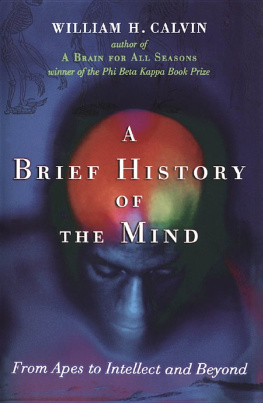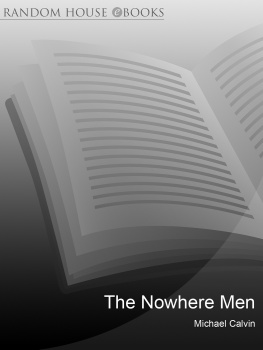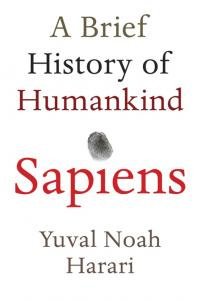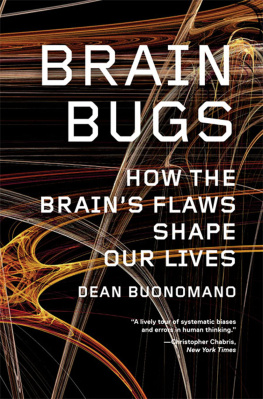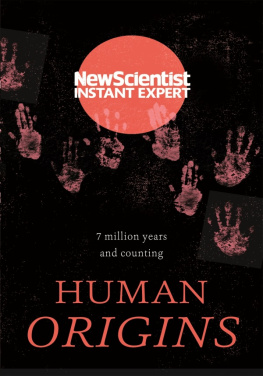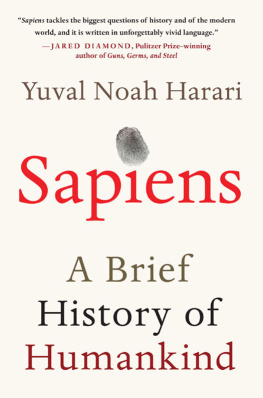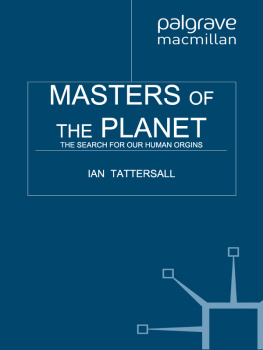A BRIEF HISTORY OF THE MIND
Books by William H. Calvin
A Brain for All Seasons
Lingua ex Machina*
The Cerebral Code
How Brains Think
Conversations with Neils Brain**
How the Shaman Stole the Moon
The Ascent of Mind
The Cerebral Symphony
The River That Flows Uphill
The Throwing Madonna
Inside the Brain**
*with Derek Bickerton
**with George A. Ojemann

OxfordNew York
AucklandBangkokBuenos AiresCape TownChennai
Dar es SalaamDelhiHong KongIstanbulKarachiKolkata
Kuala LumpurMadridMelbourneMexico CityMumbaiNairobi
So PauloShanghaiTaipeiTokyoToronto
Copyright 2004 by William H. Calvin
Published by Oxford University Press, Inc.
198 Madison Avenue, New York, New York 10016
www.oup.com
Oxford is a registered trademark of Oxford University Press
All rights reserved. No part of this publication may be reproduced, stored in a retrieval system, or transmitted, in any form or by any means, electronic, mechanical, photocopying, recording, or otherwise, without the prior permission of Oxford University Press.
Corrections and web links for this book may be found at http://WilliamCalvin.com/BHM/.
Library of Congress Cataloging-in-Publication Data
Calvin, William H., 1939
A brief history of the mind : from apes to intellect and beyond / William H. Calvin
Includes bibliographical references and index.
ISBN 0-19-515907-1
1. BrainEvolution. 2. Cognitive neuroscience. 3. Evolutionary psychology. 4. Human evolution. I. Title.
QP360.5.C3482004
153dc212003053093
Contents
Can you tell the story of the world in an evening around the campfire, the way an old-fashioned shaman used to do? The history of the mind is surprisingly brief. Instead of starting with a big bang, I lead up to onethe Minds Big Bangand then look beyond, to minds next advances.
Chimps may not be as sociable with humans as a dog that thinks you are its pack leader, or a cat that mistakes you for its mother, but chimp-to-chimp they clearly have a substantial fraction of instinctive human social behavior. They even play blindmans buff. Yet they dont plan ahead very much.
The dark woods are not where we want to be. We prefer fewer trees, along with a view of some water and grasswhich is why waterfront property is now so expensive. Our ancestors were likely digging up veggies, but not making sharp tools. Did the bipedal apes stand upright for the view, to carry the baby, or to avoid taking the midday heat hit on the broad back?
In Africa, there was a spinoff with a bigger brain. A new species usually starts out as a small, isolated population. Imagine, say, the big companys branch office in Nairobi losing communication with the parent and having to manage on its own ideas and resources, to sink or swim as an independent in a worsening climate.
Food preparation likely began, maybe even cooking the savory stew. By 1.7 million years ago, Homo erectus had spread out of Africa into the grasslands of Asia and was eating a lot of meat. Accurate throwing is a difficult task for the brain. You cant rely on progress reports as you launch (your nerves are too slow). Without timely feedback, you have to make the perfect plan as you get setand there are a million ways to get it wrong, any one of which will cause dinner to run away. So better short-term planning has an immediate payoff. Perhaps that improved their planning for other occasions as well.
When the ice age climate switched into oscillations that were slower and bigger, brain size started growing faster. But why? More demanding hunting techniques? Or ought we to be thinking about the beginnings of protolanguage, the short sentences of modern two-year-olds but without the structuring needed for long sentences?
If the hominids of 400,000 years ago could stage both toolmaking and food preparation, perhaps their life of the mind included other kinds of agendas as well, with more of an eye to the future. Asking whether Neanderthals could speak illuminates some of the changes of the previous million years.
Here we are coming up on the last few minutes of the up-from-the-apes movie, and our vaunted intelligence still hasnt made its first appearance. Our ancestors were Homo sapiens for 100,000 years but, despite the big brain, they were not behaviorally modern Homo sapiens sapiens. Simple forms of protostructure such as framing and theory of mind were likely present, and perhaps the protolanguage like that of modern two-year-olds. Clearly, brain size wasnt sufficient to produce spectacular results. It must have taken something more.
In saying I think I saw him leave to go home, you are nesting three sentences inside a fourth. Other aspects of thought are structured too: multistage planning, games with rules that constrain possible moves, chains of logic, structured music. This structured suite likely aided the giant step up to the modern mind. Did it take another genetic change to become behaviorally modern, or was accumulating culture alone able to trigger the boom by giving babies enough structured stuff to hear so that they softwired their brains earlier? And so excelled as adults?
A period between 60,000 to 40,000 years ago looks like the probable time of migration of modem humans into the more exotic parts of Eurasia. And it looks as if they became behaviorally modern in important respects not long before leaving Africa. The lack of time to debug the new abilities, before the rough-around-the-edges prototype expanded out of Africa, might be thought of as the first worldwide distribution of crash-prone software.
We have a fascination with discovering hidden order, with imagining how things hang together. And the problem with creativity is not in putting together novel mixturesa little confusion may sufficebut in managing the incoherence. Things often dont hang together properlyas in our nighttime dreams, full of people, places, and occasions that dont fit together very well. What sort of on-the-fly process does it take to convert such an incoherent mix into a coherent compound, whether it be an on-target movement program or a novel sentence to speak aloud?
Once agriculture allowed towns and specialized occupations to develop by 6,000 years ago (the last few seconds of the movie), writing developed from tax accounting about 5,000 years ago. Education now helps us to deal with our fallible minds, to unlearn our intuitive but erroneous Aristotelian physics, our intuitive biology of vital essences, and our intuitive notions of engineering that make Darwinian evolution so difficult to comprehend. Medicine now calms the voices and delusions, dampens the obsessions and compulsions, and lifts the depressions. In addition to patching us up, might mind medicine eventually improve us?
For fans of how and why questions, a brief summary of the most recent Major Transition in evolution. There are a half-dozen candidates so far for the transition to behaviorally modern Homo sapiens sapiens. All may be essential but not sufficient by themselves. The question is not when the last stone is added to the archway but which has a growth curve that becomes steeper and steeper, building on itself. The EvoDevo candidate, those precocious kids soft-wiring their brains earlier to become more capable adults, could double and redouble the percentage of syntax users in only a few generations.
As an example of four levels, fleece is organized into yarn, which is woven into cloth, which can be arranged into

